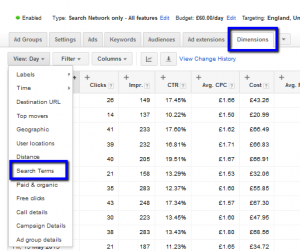In the past few weeks I’ve been talking about various trends you can expect in 2017 regarding recruitment and leadership. This week I take a look at an important aspect of developing talent. Performance Management in 2017 can’t look like what it has in the past. And that’s mainly due to the constantly changing dynamics and demands of the workforce. It’s now becoming a necessity to rethink and evolve this essential process to cater to a progressive talent pool.
So what trends can you expect in performance management in 2017? Here are a few:
More Frequent Reviews
To stay on track with organization goals and not be hit with surprises of missed targets you’ll need to have more frequent reviews. Annual feedback and development plans are just too infrequent and mainly lose their true impact. Hence, to keep performance aligned to that of the organization’s you’ll need to have performance discussions as frequent as quarterly, monthly and even weekly.
Efficiencies Through Automation
Performance Management shouldn’t be a tedious and cumbersome process. If it is, it loses its value and dilutes the positive impact it could have on your talent’s output and career. Plus managers and team leaders should be able to walk through the process with ease so that they’re able to truly extract the most from their teams. To enable all this, you’ll need to embrace and harness the power of technology. Performance Management in 2017 will not only see automated systems but will go further into the realm of real-time reporting using cloud-based and mobile technology.
Focus on Goal-Setting
Formal performance appraisals can be dull and boring. They sometimes are even intimidating for employees. Often the system, even with the best of intentions, isn’t able to truly hold its value or be unbiased. And that’s why companies like Google focus more on objectives and key results (OKRs). Once the vision is clearly communicated and employees are aligned to it, the only thing that really matters is that individuals are working towards an objective and contributing results towards the company’s success. This is why performance management in 2017 will be more about goal-setting and its achievement than formal discussions that rank employees. After all contributions towards the company speak more volumes of an individual’s performance.
Engaged Workforce
Now many people see employee engagement and performance management as two distinct HR functions. However, like many HR functions, these two are also interlinked and compliment each other. Engaging your workforce to perform can be brought about in these phases:
- Trust employees to do the right thing and in the best interests of the company
- Align them to the values, beliefs, mission and goals of the company
- Empower your talent to take ownership for what they do (if you’ve covered the first two points then you’ll be confident that through empowerment they’ll give it their best)
- Encourage them to take initiative and voice their ideas
An engaged workforce will be driven and motivated to perform under all sorts of pressure and challenges. Hence your methodology of appraising and reviewing them will be more through the meaningful discussions you have with them.
Performance Management in 2017 will see further shifts in the ideology and approach to it. Companies will focus less on dictating what their employees should do and what their expectations are. Instead, an empowered approach will slowly become the norm whereby employees will design their own career development paths, in line with the company’s goals and objectives. As frequent feedback also becomes common, employees will no doubt be more aware of their contributions and how to positively impact their career and the company itself. Looking at it from a macro level, everyone’s a winner!
Business & Finance Articles on Business 2 Community(64)






